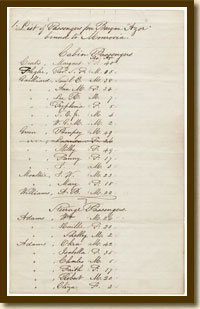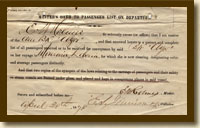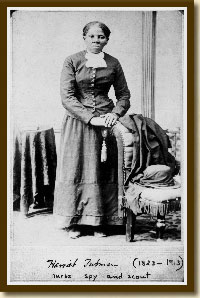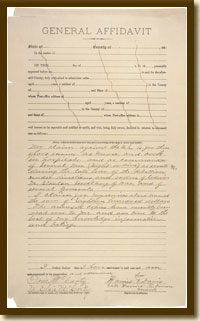Featured Story: Pursuing Rights
Initially with the protection of the 13th, 14th, and 15th Amendments, African Americans pursued their rights by becoming politically active, acquiring an education, and seeking court reparations.
List of Passengers for Barque Azor Bound to Monrovia, April 20, 1878
Masters’ Oaths for Renewals of Licenses of Vessels National Archives, Records of the U.S. Customs Service, Record Group 36 (National Archives Identifier 2641474)
Liberia was formed as a haven for freed slaves. Beginning in the 1820s, thousands of freed slaves emigrated to Liberia. One of many ships, the Barque Azor carried 260 African American emigrants to Monrovia, Liberia, from Charleston, South Carolina, for resettlement on its maiden voyage.
Master’s Oath, Barque Azor, April 20, 1878
Masters’ Oaths for Renewals of Licenses of Vessels National Archives, Records of the U.S. Customs Service, Record Group 36 (National Archives Identifier 2641474)
Request for Compensation, General Affadavit of Harriet Tubman Relating to Her Claim for a Pension, 1898 (facsimile)
Accompanying Papers of the 55th Congress, Accompanying Papers National Archives, Records of the U.S. House of Representatives, Record Group 233 (National Archives Identifier 306573)
A runaway slave herself, Harriet Tubman helped slaves escape to freedom along the Underground Railroad. During the Civil War, she was a nurse, cook, and spy as well as the leader of a scout force of 10 men.





